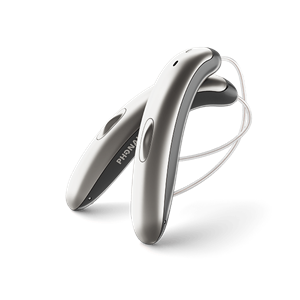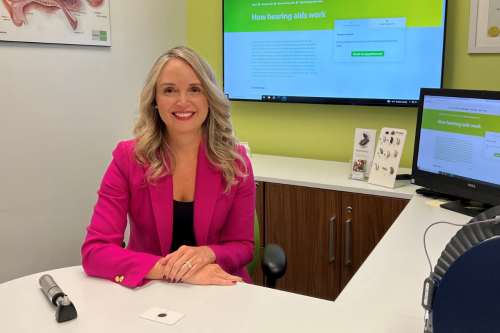Is the noise irreparably damaging your hearing? Everything you should know | Connect Hearing
_copy.png?branch=web_prod)
_copy.png?branch=web_prod)
Is the noise irreparably damaging your hearing? Everything you should know | Connect Hearing
10 min.
Publication Date: July 18, 2019
The world is a noisy place and it’s getting noisier all the time. Noise-induced hearing loss is a major health concern and can impact one’s quality of life, ability to function in society, and opportunity to earn a living.
Has your hearing already been damaged by noise?
Noise-Induced Hearing Loss
(NIHL) occurs when the tiny hair cells inside the inner ear are damaged. These delicate hair cells are sensory receptors that not only send messages to the brain differentiating sound, but also work within the vestibular (or sensory) system affecting our sense of balance and spatial orientation.
With NIHL, it can be felt or sensed in one or both ears and can be the result of a single incident or multiple exposures. Depending on the severity of the damage, NIHL can cause some or most of these symptoms:
Sounds and voices are muffled or sound like they are underwater.
It becomes harder to understand conversations.
You turn the volume up more and more to adequately hear television or music on the radio or handheld device.
You suffer from Tinnitus or ringing in the ears that can get progressively worse, leading to insomnia and depression severely impacting quality of life.
Unfortunately, the damage is permanent. However, further deterioration can be avoided through prevention—especially important since an unavoidable consequence of NIHL may be accelerated age-related hearing loss as you get older.
The 3 most common type of risks and how to avoid them
Loud noises are a part of life and it’s important to identify where there are unusually high risks so that they can be avoided or prevented. A simple guide: decibels over 85 dB for extended periods (8 hours a day) can be damaging and 100 dB or more can cause NIHL in as little as 15 minutes.
These are the three main categories to consider:
Job-related risks—Occupational NIHL hazards are prevalent in jobs that put the employee in repeated and sustained environments with loud noise, such as:
Military jobs working around jet aircraft (135 dB) or loud ordinance and munitions (160 dB)
Construction and Mining jobs that require the use of loud hand tools (110 dB) or large noisy equipment (130 dB)
Agriculture jobs where people work around big equipment used to cultivate and harvest food products (110-140 dB)
Transportation jobs that involve working around loud airplanes, trains, subways, and buses (100-135 dB)
First responder jobs like police, fire, and emergency (120 dB)
Lifestyle risks
Smartphone and hand-held devices streaming music and videos (maximum volume is 135-140 dB)
Ear buds or in-ear plugs that put the noise far to close to your eardrum
Operating home and lawn equipment (95-120 dB)
Entertainment/Hobby risks
Attending concerts and sporting events (120-140 dB); the 2019 World Cup in Sao Paulo, Brazil, registered at 100 dB for almost the entire game
Motorsports and boating including riding motorcycles (105 dB)
Hunting (140 dB)
Woodworking (130 dB)
How to prevent noise-induced hearing loss?
Whether you have so far avoided any substantial NIHL damage or you want to prevent further problems, there are several ways to protect yourself. You don’t have to give up the things that either earn you a living or add zest and appeal to your life. If you can’t simply turn down the noise, then consider these options:
Passive hearing protection—ear plugs, either the foam over-the-counter type or custom-made plugs from your audiologist.
Active hearing protection—noise-canceling over-ear headphones.
Forego earbuds and in-ear plugs—instead opt for over-the-ear types of listening devices.
Smartphone apps—there are numerous free apps that monitor/limit how high you or your child can turn up the volume and for how long you’re able to listen
If you find yourself at a loud event:
take frequent breaks to get away from the noise;
let your ears rest between events;
remember, it takes 18 hours for your ears to recover.
If You Feel You Have Already Suffered Significant Damage…
As previously stated, NIHL is permanent. Preventing further damage going forward is critical and can be achieved with relatively simple solutions. However, what can you do to correct or improve your ability to hear once you’ve suffered NIHL damage?
Today, the hearing aids and hearing assistance devices available through your local hearing specialist or audiologist are sophisticated and innovative hearing care solutions. They allow people to navigate their environment and reengage with family and friends using relatively unobtrusive devices that supplement and enhance sound.
If you feel you are experiencing noise-induced hearing loss or know someone who may be suffering, please schedule an appointment today with a specialty hearing clinic for a full hearing health assessment.
Here’s to your hearing health! We look forward to hearing from you in the comments section.



